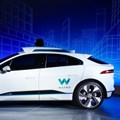Tesla unveiled the world's first mass-produced electric car nine years ago - why aren't more people driving them?
In March 2009, Tesla Motors unveiled what it touted as the world's first mass-produced, highway-capable electric car. It received an enthusiastic response.
However, nearly a decade later and electric cars are still an anomaly on the roads.
As environmental concerns and awareness around climate change move into the spotlight, we have to wonder why we are still filling up our cars with diesel and petrol, rather than volts.
There are a number of reasons why we haven't seen more electric vehicles (EVs) on the road.
There are plenty of conspiracy theories about the oil companies that are keeping technology off the market, but the truth is much simpler.
Resistance to change is one of the primary reasons.
It may seem petty, but these cars look different, smell different, power differently and drive differently.
The first automobiles faced similar resistance. Autos were ready for market in the early 1900s, but it took decades before they became commonplace.
Some of the other factors at play include:
- Expense: EVs are not only expensive for the consumer, they are expensive for the average manufacturer who has invested millions in petrol/diesel technology and servicing. Retraining staff and replacing equipment will take time and investment, and while demand is low, so is the ROI for the manufacturer.
- Recharging low energy dense batteries: Unlike your standard car that simply needs a few litres of fuel to hit the road again, recharging an EV takes time at a specialised recharging station, which is few and far in-between. You could travel 100km in an EV without recharging but 400kms in a standard car without refuelling. Batteries also need recharging frequently as they only last a few hours, making long commutes difficult and time-consuming.
- Dirty electricity: South Africa is not the ideal market to launch EVs in. Not only do we have a shortage of electricity at our disposal, we also have to contend with dirty energy. We still use coal to generate power, which is harmful to the environment. An electric car in South Africa would accordingly have a larger carbon footprint.
That does not mean that the electric car dream is dead. Electric vehicles are the way of the future. There is no doubt.
Adoption will take time. Legislation such as the emissions tax, government subsidies, cleaner electricity and improvements in technology will see more EVs on the road soon. In the meantime, hybrid cars are a nice stepping-stone towards fuel-free vehicles. Virtually every major autos player is testing an autonomous and electric vehicle right now, and as soon as customer demand warrants it, they will ramp up production.











































